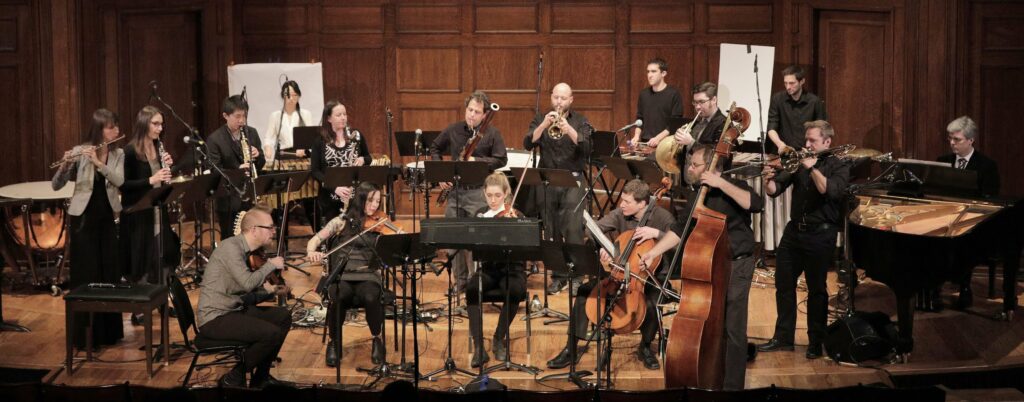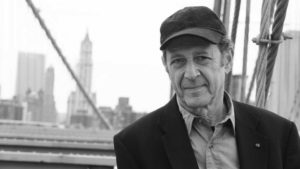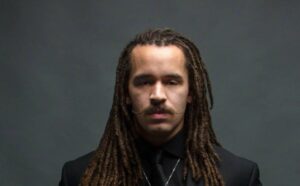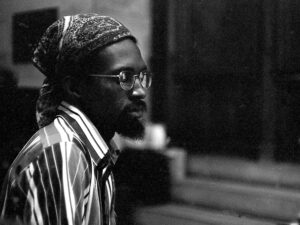
Keep in touch with AWS
Tuesday, January 16th, 7:30 pm
Sinquefield Music Center
University of Missouri
Columbia, MO
PROGRAM
Texu Kim, Līlā
*Christian Quiñones, Hasta que no pueda
*Steve Reich, Radio Rewrite
INTERMISSION
Elijah Daniel Smith, Vermilion Glare
†Julius Eastman, Stay On It, arr. Tim Leopold
*written for Alarm Will Sound
†arranged for Alarm Will Sound
NOTES
 Texu Kim, Līlā
Texu Kim, Līlā
Līlā (pronounced as “Lee-Luh”) is a Sanskrit word that can mean any form of performing arts (play, dance, etc.) by gods (though anything can be a god in Hinduism). This piece, Līlā, draws inspiration from the Korean shamanistic ritual called gut. A gut serves various functions: to comfort the dead and send them to where they belong, to heal the unwell by expelling the devil, and to bless a community, such as a family, company, or town. A gut session would be hours long, containing as many as two dozen sections.
While rhythm is the driving force in many sections, as with shamanistic rituals in other cultures, the gut is distinct for its melodic system (called tori), which has become the basis of many different Korean folk music genres, including pansori (epic saga) and sanjo (virtuosic instrumental solo music). The melody in the gut is sung by the shaman and performed by a string or reed player. In this melodic system, specific notes are elaborated by descending glissando and some others by wide vibrato.
There are a handful of basic rhythmic patterns called jangdan (meaning long and short) and their countless variations. Those basic jangdans differ from one another concerning tempo and meter. However, most of them are related to each other by augmentation/diminution, allowing the entirety to be cohesive. This is one of the concepts I applied to my piece, though the principal rhythmic pattern in my work (a seven-beat pattern) is not from the gut tradition. Similarly, no specific gut melody is quoted in Līlā, although the pitch contents reflect the melodic system and speech patterns.
The gut differs from other related traditions (like danse macabre, for example) by its ultimate goal being the pursuit of the well-being of the living. It also exhibits humanistic values through its captivating (thus entertaining) music, full of cathartic quality and boundless energy.
The gut is considered one of the highest art forms in Korea, where the phrase “shaman-like” means “viscerally intuitive as a performer.” This piece is written in memory of the Music Director Laureate of the Oakland Symphony, maestro Michael Morgan (1957-2021), one of the most shaman-like musicians I have worked with.
Līlā was commissioned by the Barlow Endowment for Music Composition at Brigham Young University.
— Texu Kim
Christian Quiñones, Hasta que no pueda
One of my most constant fears in life is reaching the day when my mother can’t hear me or listen to music. She has congenital hearing loss and I still clearly remember the day when as a kid I understood what that meant. The terrifying thought of her one day not being able to understand me or being able to enjoy music has always been a persistent but seemingly distant dread, but a lot of that has become more imminent recently. The past year we received the news that her hearing loss reached fifty percent in one ear. After that moment, even in the most mundane situations in life, I often think about “how would my mom listen to this?” with the help of a website that simulates the effect of different types of hearing loss, this piece strives to answer that question. The piece takes short samples of many songs that I didn’t necessarily like, but that my mom used to listen to a lot when we were growing up, and reimagines them through a filtered and maximalist lens. Sonically, the piece slowly morphs from a muted and dark soundscape into a brightly colored and vibrant texture that mirrors my mother’s congenital chronic condition.
 Steve Reich, Radio Rewrite
Steve Reich, Radio Rewrite
Over the years composers have used pre-existing music (folk or classical) as material for new pieces of their own. This was particularly notable from the beginning of the 15th to the end of the 17th century when over forty settings of the Mass using the tune L’homme armé as its point of departure were written by composers Dufay, Ockeghem, Josquin des Pres, and Palestrina among others. L’homme armé was a popular folk song yet writing a Mass was similar in scope then to writing a symphony in the classical or romantic period. Much later in the 19th century Brahms wrote Variations on a Theme of Haydn and in the 20th century we find Stravinsky reworking Pergolesi for his own Pulcinella. Radio Rewrite, along with Proverb (Perotin) and Finishing the Hat—Two Pianos (Sondheim), are my modest contribution to this genre.
Now, in the early 21st century, we live in an age of remixes where musicians take audio samples of other music and remix them into audio of their own. Being a composer who works with musical notation I chose to reference two songs from the rock group Radiohead for an ensemble of musicians playing non rock instruments. The two songs chosen were Everything in its Right Place and Jigsaw Falling Into Place. The story is as follows:
In September 2010 I was in Krakow for a festival of my music. One of the featured performers was Jonny Greenwood of Radiohead who had prepared all the backing tracks for my piece, Electric Counterpoint and then played electric guitar live against those tracks in concert. It was a great performance and we began talking. I found his background as a violist and his present active role as a composer extremely interesting when added to his major role in such an important and innovative rock group. Even Festival director Filip Berkowitz suggested I listen to Radiohead. When I returned home I made it a point to go on line and listen to their music and the two songs mentioned above stuck in my head.
It was not my intention to make anything like ‘variations’ on these songs, but rather to draw on their harmonies and sometimes melodic fragments and work them into my own piece. This is what I have done. As to actually hearing the original songs, the truth is—sometimes you hear them and sometimes you don’t.
Radio Rewrite is in five movements played without pause. The first, third and fifth are fast and based on ‘Jigsaw’ and the second and fourth are slow and based on ‘Everything’. The piece is scored for flute, clarinet, 2 vibes, 2 pianos, string quartet and electric bass. It was co-commissioned by the London Sinfonietta and Alarm Will Sound and is about 19 minutes in duration. It was completed in August 2012.
— Steve Reich
Elijah Daniel Smith, Vermilion Glare
Vermilion Glare aims to capture the feeling of straining to visually focus on what’s in front of
you when the setting sun is shining directly into your eyes.
 Julius Eastman, Stay On It, arr. Tim Leopold
Julius Eastman, Stay On It, arr. Tim Leopold
Arguably Julius Eastman’s most iconic composition, Stay On It was premiered in 1973 during his residency as a Creative Associate at the Center of the Creative Arts in Buffalo, New York. Stay On It is a post-minimal, structured improvisation for any combination of instruments, drawing on musical influences from minimalism, free jazz, pop, caribbean, disco, and Latin, among others. Its dramatic trajectory progresses loosely from mechanized inflexibility, to collective riotousness, to individual expressivity, mirroring the social, political, and musical unrest of our time. –Tim Leopold
Acknowledgements
Alarm Will Sound gratefully acknowledges our individual donors and the following foundations for their support: Aaron Copland Fund for Music, Amphion Foundation, Alice M. Ditson Fund of Columbia University, BMI Foundation, Cheswatyr Foundation, Howard Gilman Foundation, and the Sinquefield Charitable Trust.
Additional Support provided by public funds from the New York City Department of Cultural Affairs in partnership with the City Council; the New York State Council on the Arts with the support of the Office of the Governor and the New York State Legislature; and the National Endowment for the Arts.
Alarm Will Sound
Alarm Will Sound is a 20-member band committed to innovative performances and recordings of today’s music. They have established a reputation for performing demanding music with energetic skill. Their performances have been described as “equal parts exuberance, nonchalance, and virtuosity” by the Financial Times of London and as “a triumph of ensemble playing” by the San Francisco Chronicle. The New York Times says that Alarm Will Sound is “one of the most vital and original ensembles on the American music scene.”
With classical skill and unlimited curiosity, Alarm Will Sound takes on music from a wide variety of styles. Its repertoire ranges from European to American works, from the arch-modernist to the pop-influenced. Alarm Will Sound has been associated since its inception with composers at the forefront of contemporary music, premiering pieces by John Adams, Steve Reich, David Lang, Mary Kouyoumdjian, Tyondai Braxton, Augusta Read Thomas, Derek Bermel, Meredith Monk, and Wolfgang Rihm, among others. The group itself includes many composer-performers, which allows for an unusual degree of insight into the creation and performance of new work.
Alarm Will Sound is the resident ensemble at the Mizzou International Composers Festival. Held each July at the University of Missouri in Columbia, the festival features eight world premieres by early-career composers. During the weeklong festival, these composers work closely with Alarm Will Sound and two established guest composers to perform and record their new work.
Alarm Will Sound may be heard on eighteen recordings, including including For George Lewis | Autoshchediasms, their most recent release featuring music of Tyshawn Sorey; Omnisphere, with jazz trio Medeski Martin & Wood; a collaboration with Peabody Award-winning podcast Meet the Composer titled Splitting Adams; and the premiere recording of Steve Reich’s Radio Rewrite. Their genre-bending, critically acclaimed Acoustica features live-performance arrangements of music by electronica guru Aphex Twin. This unique project taps the diverse talents within the group, from the many composers who made arrangements of the original tracks, to the experimental approaches developed by the performers.
Alarm Will Sound collaborates with artists who work beyond the bounds of classical music. Alarm System, the Matt Marks Impact Fund, and Video Chat Variations, a YouTube series developed during the COVID-19 pandemic, are initiatives that have created cross-genre music with electronica artists Eartheater, Jlin, King Britt, and Rashad Becker; jazz composer-performer Dave Douglas; multimedia artists Mira Calix, Bakudi Scream, and Damon Davis; soundtrack composers Brian Reitzell and JG Thirlwell; producer Valgeir Sigurðsson, and singer-songwriter Alyssa Pyper.
In 2016, Alarm Will Sound in a co-production with Opera Theatre of St. Louis, presented the world premiere of the staged version of Donnacha Dennehy’s The Hunger at the BAM Next Wave Festival and the Touhill Performing Arts Center. Featuring Iarla O’Lionárd (traditional Irish singer) and Katherine Manley (soprano) with direction by Tom Creed, The Hunger is punctuated by video commentary and profound early recordings of traditional Irish folk ballads mined from various archives including those of Alan Lomax.
In 2013-14, Alarm Will Sound served as artists-in-residence at The Metropolitan Museum of Art. During that season, the ensemble presented four large ensemble performances at the Met, including two site-specific productions staged in museum galleries (Twinned, a collaboration with Dance Heginbotham and I Was Here I Was I, a new theatrical work by Kate Soper and Nigel Maister), as well as several smaller events in collaboration with the Museum’s educational programs.
In 2011, at Carnegie Hall, the group presented 1969, a multimedia event that uses music, images, text, and staging to tell the compelling story of great musicians—John Lennon, Karlheinz Stockhausen, Paul McCartney, Luciano Berio, Yoko Ono, and Leonard Bernstein—striving for a new music and a new world amidst the turmoil of the late 1960s. 1969’s unconventional approach combining music, history, and ideas has been critically praised by the New York Times (“…a swirling, heady meditation on the intersection of experimental and commercial spheres, and of social and aesthetic agendas.”)
Alarm Will Sound has been presented by Carnegie Hall, Lincoln Center, (le) Poisson Rouge, Miller Theatre, Brooklyn Academy of Music, the Kitchen, the Bang on a Can Marathon, Disney Hall, Kimmel Center, Library of Congress, the Walker Arts Center, Cal Performances, Stanford Lively Arts, Duke Performances, and the Warhol Museum. International tours include the Beijing Modern Festival, Now Hear This (Korea), the Holland Festival, Sacrum Profanum, Moscow’s Art November, St. Petersburg’s Pro Arte Festival, and the Barbican.
The members of the ensemble have also demonstrated our commitment to the education of young performers and composers through residency performances and activities at Princeton University, the University of Michigan, University of Maryland, Shenandoah University, the Community Music School of Webster University, Cleveland State University, University of Colorado at Boulder, University of Missouri, Eastman School of Music, Dickinson College, Duke University, the Manhattan School of Music, Harvard University, New York University, and the Massachusetts Institute of Technology.
For more information and to join the mailing list, visit Alarm Will Sound’s website at www.alarmwillsound.com
GEORGIA MILLS
Georgia Markakis Mills is an American conductor recognized for her innovative programming, energized interpretations, and commanding technique to lead celebrated repertoire of the past in tandem with exhilarating new music.
Georgia has appeared as a guest conductor with leading contemporary groups including Contemporaneous, Grossman Ensemble, International Contemporary Ensemble, and Ensemble Signal, with whom she premiered Nico Muhly’s ballet Third Bird with the Guggenheim Museum’s “Works and Process” performing arts series. Previously, Georgia conducted the premiere of Pulitzer Prize-winner Julia Wolfe’s Oxygen presented by Carnegie Hall. In recent years, she has collaborated and performed with artists such as Chris Thile, George Lewis, Augusta Read Thomas, Louis Andriessen, Molly Herron, Darian Donovan Thomas, and Kate Soper. Georgia served as Associate Music Director for Judd Greenstein’s world premiere opera A Marvelous Order, and was cover conductor for Dylan Mattingly’s world premiere opera Stranger Love presented by the LA Phil.
In recent months, Georgia served as cover conductor with top orchestras and presenters including the New York Philharmonic at David Geffen Hall, the Los Angeles Philharmonic at Walt Disney Concert Hall, and the Virginia Symphony Orchestra at Paramount Theater. In the upcoming new year, Georgia will conduct the Orlando Philharmonic Orchestra in a program of major works by Stravinsky, Copland, Nardi, and Mozart. She will also lead the New Amsterdam Symphony Orchestra in a concert featuring Beethoven’s “Eroica” Symphony.
Georgia is a doctoral candidate in Conducting at the Eastman School of Music, where she has served as Assistant Conductor of the Musica Nova Ensemble under the direction of conductor Brad Lubman since 2019. In April 2023, she delivered her doctoral lecture recital on micropolyphonic transformations in György Ligeti’s Chamber Concerto. Georgia is Adjunct Professor of Orchestration at Roberts Wesleyan University and holds graduate teaching awards at the Eastman School of Music.
PERSONNEL
Emlyn Johnson, flutes
Christa Robinson, oboe
Bill Kalinkos, clarinet
Elisabeth Stimpert, clarinets
Michael Harley, bassoon, contrabassoon, piano
Amanda Collins, horn
Tim Leopold, trumpet
Michael Clayville, trombone
Chris P. Thompson, percussion
Matt Smallcomb, percussion
John Orfe, piano
Patti Kilroy, violin
Amy Appold, violin
Matt Albert, viola
Stefan Freund, cello
Miles Brown, upright bass and electric bass
Gavin Chuck, voice
Steve Gardner, audio engineer
Georgia Mills, conductor
Alan Pierson, Artistic Director
Gavin Chuck, Executive Director
Peter Ferry, Assistant Director of Artistic Planning
Jason Varvaro, Production Manager
Annie Toth, General Manager
Tracy Mendez, Development Manager
Michael Clayville, Director of Marketing
Bill Kalinkos, Librarian
Uday Singh, Program Coordinator


